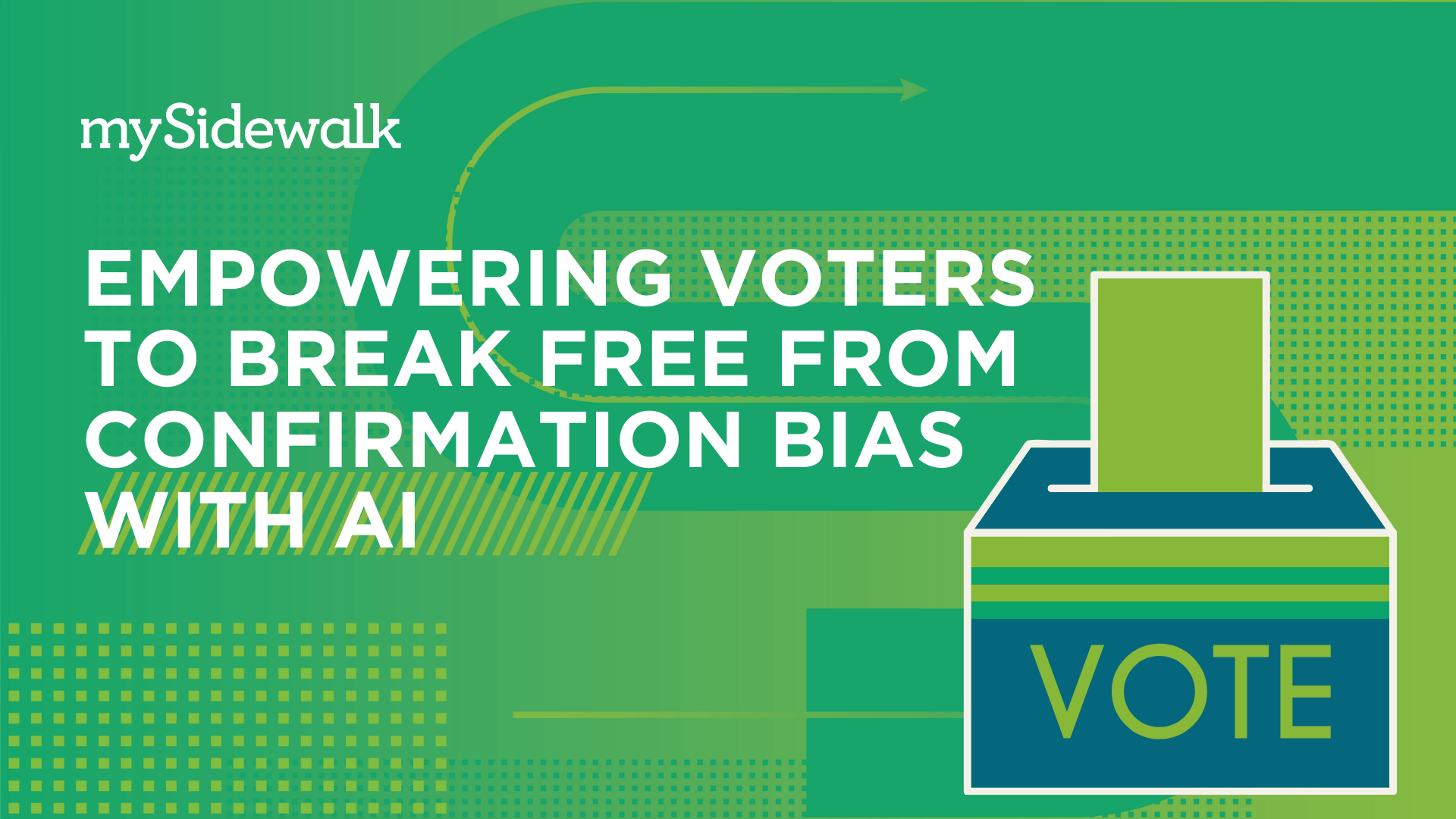Harnessing AI for Good: The Power of Great Questions
It’s amazing what you can do in a week.
I ended one week surrounded by some of the smartest people in GovTech discussing the Future of AI & Open Government Data. I started the next week sweating alongside 2,000 kids at my son’s summer camp. (see: current heatwave for more details)
In both examples, I was reminded of the power of a good story.
Good storytelling is what has propelled our customers, like KABOOM! in their journey to eradicate playspace inequity. Good storytelling is also what engages a group of boys around a campfire.
For the last 15 years, we’ve studied storytelling. We’ve listened to our customers; we’ve heard about their top challenges; and we’ve heard about their wins, their stories.
Here’s what our customers consistently build great stories around:
- Asking great questions. As the closest people to the problem, they’re interested in understanding why and digging deeper.
- Interdisciplinary thinking. Gone are the days of a specific department owning the health or economic or safety outcomes for a community. Our customers know to solve any of it, we have to look at community data through a connected lens.
What we’ve also learned from our customers is that the data they need to tell great stories isn’t always available. They can’t ask great questions or think across disciplines when the building blocks to their story are buried in spreadsheets or siloed to a “data person.”
Solving the Biggest Problems
It's not a secret I’m excited about the new products we are building right now. We’ve been working hand-in-hand with hundreds of public agencies, not-for-profits, and research institutions to build out next-generation tools. We are optimistic about the potential of AI and LLMs, in particular, in allowing people to interact with data naturally.
Rather than forcing people to learn software, we believe more progress can be made when we focus on what humans do well - naturally.
With that in mind, we’re working to create natural interactions with data, so our tools can:
- Allow humans to think like humans. If we've learned anything, it's that the interdisciplinary thinker is the best suited to ask good questions. We can drop the technical barrier to interact with software and data all the way to the floor. Anyone can do it. That means those of us asking the right questions are going to be in the best place to guide our communities forward.
- I talked to Catherine Bass at Belmont Data Collaborative as she compared the resources needed to make a map previously—and then how our tools create the same map in seconds.
- Enhance, don’t replace, roles. It's easy to feel a bit threatened when new technology unlocks new capabilities, but let’s be honest, for our customers there is so much that needs to be done, they don’t need to worry about being replaced! For years, data teams have been bombarded with requests and the impossible task of keeping billions of data points straight. AI-ready data will ease this burden - it's something we’ve already seen happen. For our customers, this means things like - when the geography changes over time or what datasets you should consider for affordable housing - are all at your fingertips. We want our customers to have the brain space for asking better questions, not tracking data nuances.
- See a part of my chat with Heather Hunter at Santa Fe Data Platform as she gets insight into affordable housing data indicators for her community. Spoiler alert: it all begins with a great question.
- Help you spot hallucinations and bias. AI agents are good at looking right even when they aren’t. We’ve had to build new tools that test for accuracy and bias in our community data. This investment in new tools (and our commitment to always “showing our work”) means we’re giving you all the needed information to trust the responses you get and you can use that to report out to the people that trust you.
- Our CTO, Matt Barr, shared some of our learnings in response to the Department of Commerce AI and Open Government RFI on a recent blog post.
At no point in my career have I been more excited about the potential for our customers. Heather and Catherine’s experiences are just the beginning. We’d love for you to join us on this journey and contribute to our progress. All you have to do is ask.
P.S. — I'm going to be talking about how AI can be leveraged by city leaders with the National League of Cities. If you'd like to join, you can register for the webinar here.
Share this
You May Also Like
These Related Stories

Sidekick goes to Washington

Empowering Voters to Break Free from Confirmation Bias with AI


No Comments Yet
Let us know what you think